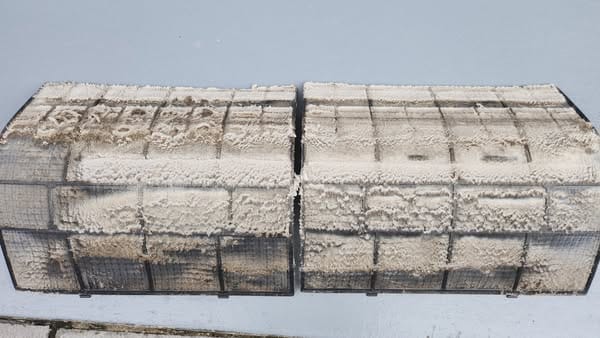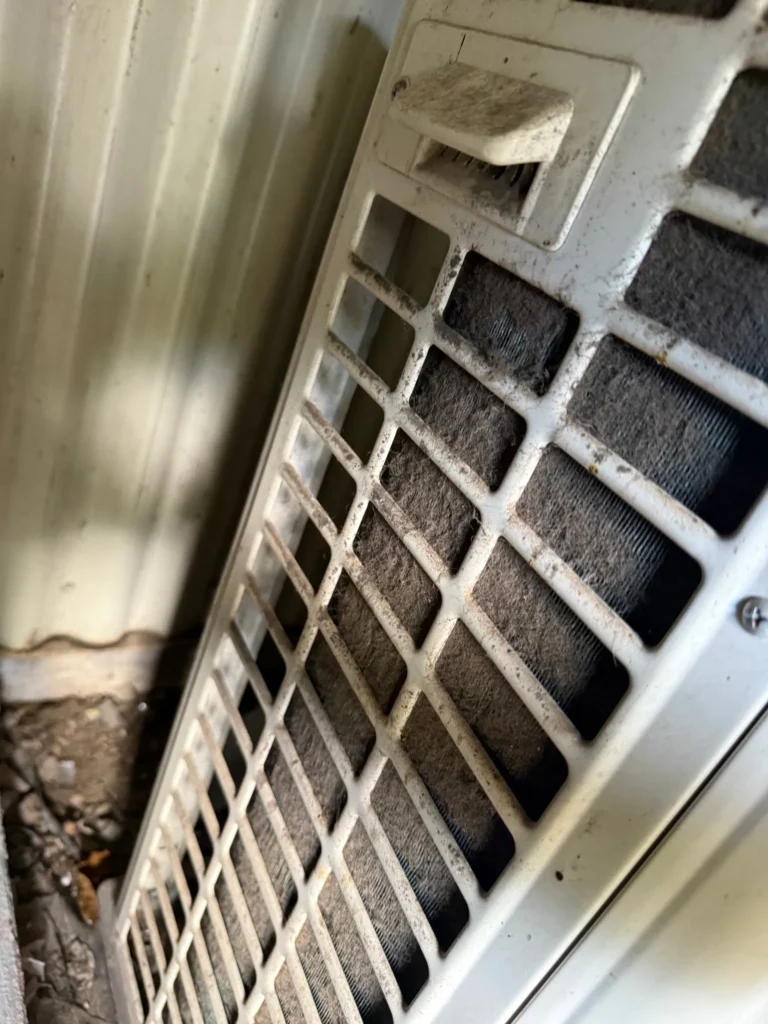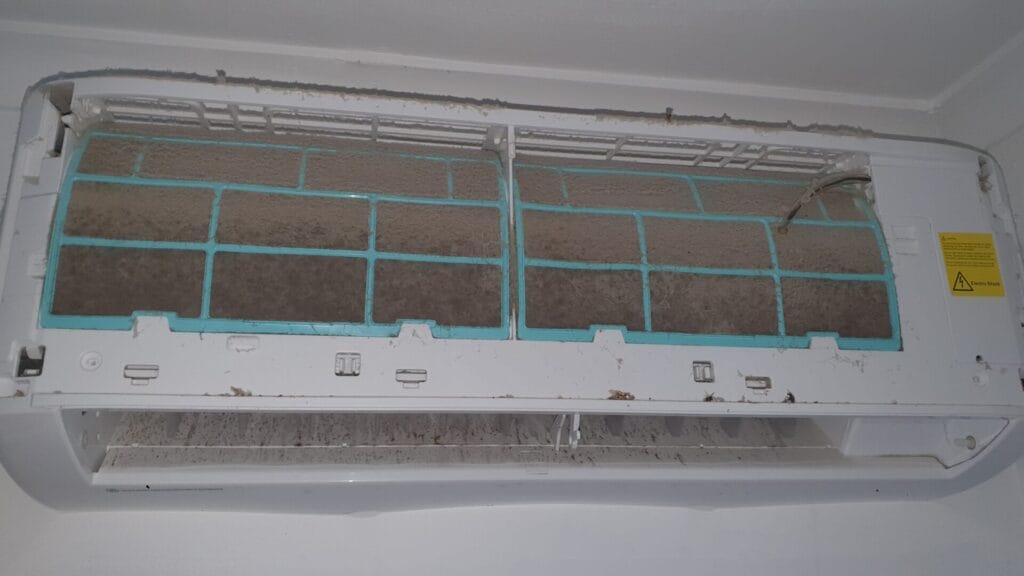By Spotless Clean Air Services – 4/06/2025

When Cool Air Disappears
You turn on the air conditioner expecting a blast of icy relief.
Instead, you get lukewarm disappointment.
If your air conditioner is not cooling, ac not blowing cold air, or your aircon is not working, something inside the system is out of balance.
Luckily, most air conditioner problems are easy to identify and many are preventable.
Clogged Filters: The Silent Chokepoint
How Dirty Filters Restrict Airflow
Your AC filter is the first defense against dust and debris.
When it’s clogged, airflow drops like breathing through a thick scarf.
This can cause air conditioner weak airflow and lead to a frozen evaporator coil.
When to Clean or Replace
Most filters need checking every 60 to 90 days and regular cleaning to avoid build-up.
Homes with pets or dust should do it more often to avoid air conditioner not working properly.

Low Refrigerant Levels
Signs of Refrigerant Loss
If your ac is not cooling but running, refrigerant might be low.
Other signs: hissing sounds, ice buildup on coils, and longer cooling times.
Causes and Dangers of Low Charge
Refrigerant doesn’t run out it leaks.
Leaks often come from corroded joints.
Left unchecked, it can cause compressor damage and split system not cooling issues.
Frozen Evaporator Coil
Why Coils Freeze
Poor airflow or low refrigerant causes condensation to freeze on the coil.
This restricts cooling and leaves your air conditioning not cold.
The Ripple Effect on Performance
Once ice builds up, your system works harder and risks shutting down.
Even if thawed, you’ll still wonder why is my aircon not cold until the issue is fixed.
Blocked or Dirty Condenser Unit
Outdoor Unit Neglect
The outdoor condenser releases heat.
When it’s blocked by leaves or grime, it can’t do its job leading to ac blowing warm air.
How to Clean the Condenser Safely
Turn off power, remove debris, and rinse gently with low-pressure water.
Avoid bending the delicate fins.

Thermostat Issues
Incorrect Settings
One of the most common mistakes the thermostat is set to “fan” instead of “cool.”
Make sure the setting and temperature are correct.
Faulty Sensors and Calibration Problems
Misaligned or broken sensors can cause erratic operation and AC not cooling issues.
Compressor Failure
What the Compressor Does
The compressor is the heart of your AC.
It pushes refrigerant through the system to remove heat.
How to Know When It’s Dead
If the fan runs but there’s no cool air and you hear buzzing or clicking,
you might have a compressor failure, especially in ducted air conditioner not cooling scenarios.
Electrical or Capacitor Failures
Start Capacitors and Relays Explained
Capacitors give your system the jolt it needs to start.
If they fail, motors won’t turn on and your aircon won’t work at all.
Flickering Power, Strange Noises
Buzzing, dimming lights, or clicking
It could be an electrical fault causing your air conditioner problems.
Ductwork Leaks or Blockages
Leaking Cool Air into the Roof Space
Leaky ducts can waste up to 30 percent of your cooled air.
That means your air conditioning feels not cold even though it’s running constantly.
Signs of Poor Duct Efficiency
Dusty air, high bills, hot and cold zones all signal your air conditioner is not working properly because of faulty ducts.
Insufficient System Size
Why Bigger Isn’t Always Better
Oversized units cool too fast without removing humidity.
Undersized ones run nonstop and still leave your split system not cooling enough.
When It’s Time to Recalculate Load
If you’ve renovated or extended your space, your current AC might not suit your needs.
That can lead to air conditioner not cooling complaints year-round.
Troubleshooting the Problem
Step-by-Step Checks You Can Do at Home
1. Check the thermostat Set to “cool” and lower than room temp
2. Inspect air filters Clean or replace if dirty
3. Clear the condenser Remove debris and hose down
4. Check breakers & reset if tripped
5. Listen for signs clicking, buzzing, or silence can signal deeper issues
When to Call a Technician
If coils are frozen, refrigerant is low, the compressor is silent, or more in a depth inspection and fixing is needed, call a pro.
Some problems go beyond DIY and need expert help to fix ac not cooling effectively.

Get the Chill Back Fast
Don’t ignore the warning signs.
Whether it’s troubleshooting air conditioner issues or calling in a technician
taking action fast can restore your comfort and prevent costly repairs.
Knowing how to fix air conditioner not cooling starts with spotting the signs and dealing with them early.